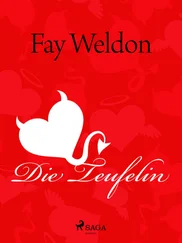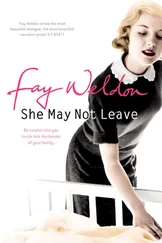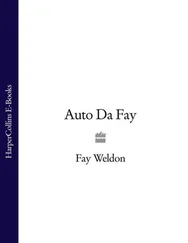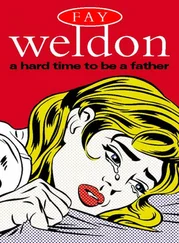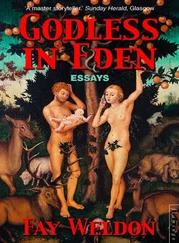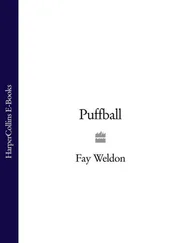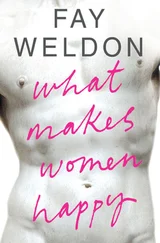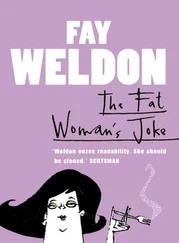Fay Weldon - The Bulgari Connection
Здесь есть возможность читать онлайн «Fay Weldon - The Bulgari Connection» — ознакомительный отрывок электронной книги совершенно бесплатно, а после прочтения отрывка купить полную версию. В некоторых случаях можно слушать аудио, скачать через торрент в формате fb2 и присутствует краткое содержание. Жанр: unrecognised, на английском языке. Описание произведения, (предисловие) а так же отзывы посетителей доступны на портале библиотеки ЛибКат.
- Название:The Bulgari Connection
- Автор:
- Жанр:
- Год:неизвестен
- ISBN:нет данных
- Рейтинг книги:5 / 5. Голосов: 1
-
Избранное:Добавить в избранное
- Отзывы:
-
Ваша оценка:
- 100
- 1
- 2
- 3
- 4
- 5
The Bulgari Connection: краткое содержание, описание и аннотация
Предлагаем к чтению аннотацию, описание, краткое содержание или предисловие (зависит от того, что написал сам автор книги «The Bulgari Connection»). Если вы не нашли необходимую информацию о книге — напишите в комментариях, мы постараемся отыскать её.
The Bulgari Connection — читать онлайн ознакомительный отрывок
Ниже представлен текст книги, разбитый по страницам. Система сохранения места последней прочитанной страницы, позволяет с удобством читать онлайн бесплатно книгу «The Bulgari Connection», без необходимости каждый раз заново искать на чём Вы остановились. Поставьте закладку, и сможете в любой момент перейти на страницу, на которой закончили чтение.
Интервал:
Закладка:
It has taken me a year with Dr Jamie Doom the TV psychotherapist – he does take a few patients privately – to be able to face the facts of the matter. Doris Dubois is a superior human being to myself in every way and no sane man would not prefer her to me, in bed or out of it, as wife, partner or mistress. I face myself in the mirror, I look at my fading eyes and know that they have seen too much, and that there is no brightening them. What ages us is experience: there can be no forgetfulness.
‘But aren’t you angry?’ asks Dr Jamie Doom, ‘You must try to find your anger.’ But I can’t.
Perhaps God will reward me for having come to terms, as Dr Doom puts it, with my distress. I am sure no-one else will. This evening I am going to a party given by a pair of the kind ones, Lady Juliet Random and her husband Sir Ronald. It’s a charity auction in aid of ‘Lost Children Somewhere’. I am invited not just out of kindness but because I might be able to give a hundred pounds or so to Lady Juliet’s cause. Nothing compared to the thousands others give – I am only fifth or sixth division wealth now that I live on alimony – but no doubt still worth the champagne and canapés which I’ll consume. At least I don’t have to worry about meeting Doris and Barley at Sir Ronald’s: they move in more elevated artistic and political circles now. The parties they go to are attended by Arts Ministers, Leisure Gurus, Museum Moguls, Dotcom-Millionaires, Monarchs of the BBC and so forth. I tell you what, every now and then I could take Barley by surprise and make him laugh. I think Doris can do everything for Barley but that. She is too intent on pleasuring herself and him to have time for much mirth. But I daresay with age even my laughter, which once Barley loved, will turn into a witch’s cackle.
6
‘Who is the woman sitting in the corner?’ young Walter Wells asked Lady Juliet.
He had been studying her. She sat at rest as though posing for a portrait. He thought she looked lovely, whoever she was. She was not as young as she had been, it was true, but this gave her looks a kind of lush and wistful melancholy: he had been much taken in his childhood by images of the blown rose, of battered scarlet velvet petals, tempest tossed. Walter Wells thought perhaps he had been born a poet almost as much as an artist. Though now, at twenty-nine, he earned a living painting portraits, he sometimes felt that his heart was in language rather than in the image. But a man, however multi-talented, can’t do everything and the image paid better than words in the new century. So many languages it was only polite to learn, from Urdu to Serbo-Croat, that everyone had settled for symbols. A flat hand to stop you crossing the road was better than the word STOP, a green running man to show you the way out preferable to the word EXIT. So he had been practical and gone to art college, only to find the artist was as likely to live in a garret as the poet, unless he was very lucky.
It was in pursuit of luck that he was here at this charity auction today, where he knew no-one and felt altogether out of his generation. He it was who had painted the portrait of Lady Juliet Random, which was any minute now to be auctioned for the sake of Little Children, Everywhere, Lady Juliet’s favourite charity. He liked Lady Juliet and wanted to oblige her, she was good looking and relaxed and easy to paint and had only good things to say about everyone. She was quite voluptuous, and Walter Wells wished more of his sitters were like her. A good curve painted well, but in his experience if you blessed your sitters with a roundness of line on the canvas they only accused you of making them look fat.
‘Who can you mean?’ asked Lady Juliet. ‘The woman in the crushed velvet dress? Good Lord, that kind of fabric went out thirty years ago. But I’m glad to see she’s making an effort. It’s poor Grace Salt, the one who tried to mow down Doris Dubois in her Jaguar in a supermarket car park. You must have heard of her? No?’
‘No.’
‘Oh, you artists! Snug in your garrets, safe from the world.’ Walter’s portrait of Lady Juliet was to be the centrepiece of the auction. He had actually painted two, one which Lady Juliet would keep, the other a copy for the auction, painted for free, his gift in kind to Little Children, Everywhere. Lady Juliet had twisted his arm and melted his heart, as she was so good at doing, her soft mouth imploring, her eyes beseeching: he had done the extra work and not complained, though she had not even offered to pay for paint or canvas. People did not realise that these things cost money. The Randoms were pleased with the painting: they would hang it in pride of place on the wall of their library in their Eaton Square house, one of those stoic well-built cream-painted places with stolid pillars and steps and an air of infinite dullness, but at least he would know where it was. The copy would go to an unknown home. He did not like that.
‘The Salt scandal was in all the papers,’ said Lady Juliet, taking his arm, as she did at every opportunity. She was looking magnificent and charming both: such an art to be so grand and yet loveable, and thus to inspire in others more admiration than envy. She had a smooth, untroubled childish face, with small even features and a curved mouth given to laughter, and if she had nothing nice to say she kept silent, which was more than most in her circle did. She was dressed tonight as she had been for the portrait, in simple slinky white and her plentiful probably blonde hair twisted on top of her head. Clasped round her neck, falling in roundels of bright colour against her firm, creamy skin was a Bulgari necklace, steel and gold set with cabochon emeralds, rubies, sapphires and brilliant cut diamonds, made in the sixties, and insured for £275,000, a sum Walter had heard mentioned as he worked.
Sir Ronald had charged more than once into the garden room, clouding the good North light with cigar smoke as was his habit, and doubted the wisdom of the jewels not being in the bank, couldn’t Walter work from a photograph? But Lady Juliet had said authenticity was so important, lights should not be hidden in bushels, jewels could not be forever in vaults or they lost their magic, what was the point of having these things if the world didn’t know about it, and so on. What was he afraid of? That Walter would run off with them? Slip the matching earrings into his pocket? Walter was too poetic a soul to run off with anything. He was an artist, everyone knew artists were above material things.
Which they obviously believed in their naivety, since Walter was being paid only £1800 to do the portrait – well, actually to do the two – and the Randoms assumed that was generous, and that they were doing him a kindness, employing and trusting a comparative unknown in the first place, introducing him to those levels of society where artists got more like £18,000 for a single fashionable portrait, than £1800 for a pair, which worked out at £300 a week for six weeks work. He would rather paint landscapes when it came to it: the weather kept changing and the light with it, but at least the landscape sat still.
‘So you want to be introduced to the woman in the corner in the crushed velvet dress,’ said Lady Juliet, ever happy to oblige. The jewels in her necklace glittered and glanced where they caught the light: the thing seemed magically, beautifully alive; he hoped he had got the intensity of it on the canvas: paint and brush could do only so much. But on the whole he was pleased. The copy, he thought, had been minimally better than the original: he had really got his hand in on the precious stones second time round, but he was the only one who would notice that. Only one in a hundred ever really noticed anything.
‘You only have ten minutes before the auction begins,’ said Lady Juliet. ‘I’m going to want you to go on stage and talk to them a little about art, and be altogether as languid and beautiful as you can, not that you have to try. They’ll think you’re photogenic and have a future and prices will triple. But do by all means talk to Grace first. I need her in a good mood. Barley gave her a good settlement, at least three million, and probably more, none of us like talking large figures in the press or they take us for fat cats, and I do so hate being called fat, even though I know I am. Little Children, Everywhere need women like Grace. The wretched of the earth could do with some of everyone’s alimony. This is the growth area, the future lies in this world of multiple divorces, multiple remarriages. Not just money to charity on death, but on divorce, too, an intrinsic part of any settlement. We all live far too well, with our champagne and our canapés, don’t you think? But what’s to be done? The world is what it is. All we can do is change our little corner of it.’
Читать дальшеИнтервал:
Закладка:
Похожие книги на «The Bulgari Connection»
Представляем Вашему вниманию похожие книги на «The Bulgari Connection» списком для выбора. Мы отобрали схожую по названию и смыслу литературу в надежде предоставить читателям больше вариантов отыскать новые, интересные, ещё непрочитанные произведения.
Обсуждение, отзывы о книге «The Bulgari Connection» и просто собственные мнения читателей. Оставьте ваши комментарии, напишите, что Вы думаете о произведении, его смысле или главных героях. Укажите что конкретно понравилось, а что нет, и почему Вы так считаете.

